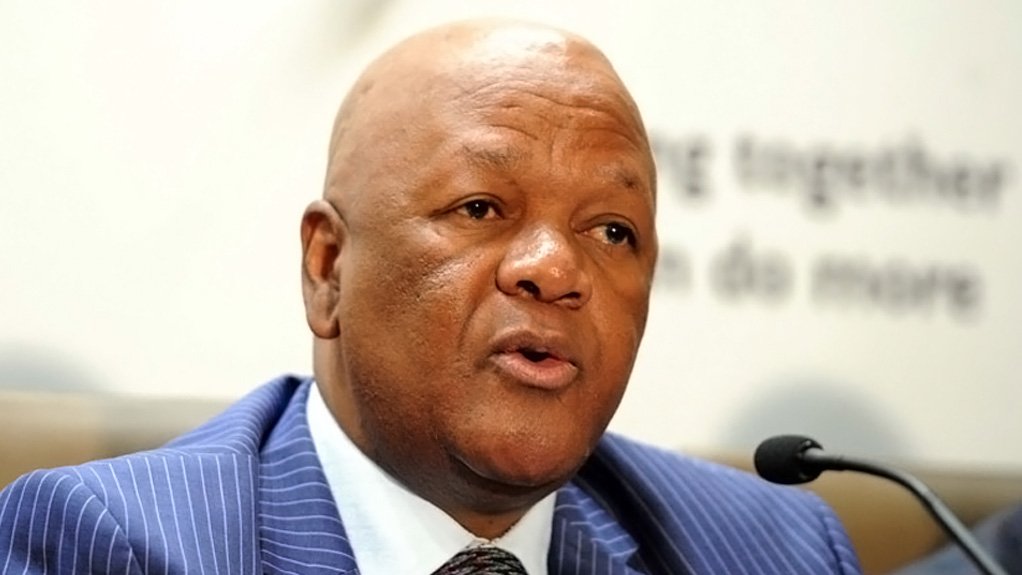South Africa has joined the international community in commemorating the 2014 International Anti-Corruption Day.
The United Nations has designated December 9 as International Anti-Corruption Day, which is celebrated annually. It is regarded as a valuable opportunity to promote the United Nations Convention against Corruption (UNCAC), which was signed into force 10 years ago, and reflect on initiatives taken against corruption on a global, regional and national level.
The day also reflects the seriousness that has been placed on raising awareness on the nature of corruption, its negative effects and the steps being taken globally to eradicate it.
“Break the corruption chain” is the theme for 2014.
Speaking at a conference hosted by the Public Service Commission (PSC) in partnership with the Department of Communications (DoC), United Nations Office on Drugs and Crime (UNODC) and the University of South Africa (UNISA), Minister in the Presidency, Jeff Radebe, said no country is immune to corruption.
However, he said government has made fighting corruption one of its key priorities.
“The struggle against corruption received new impetus with the election of President Jacob Zuma in 2009,” said Radebe.
This is also reflected in the Medium-Term Strategic Framework, which has the reduction of corruption in the private and public sectors as one of the critical goals for the next five years, as well as the National Development Plan (NDP).
The NDP sets out a vision for a South Africa that has zero tolerance for corruption and a society in which citizens do not offer bribes and have the confidence and knowledge to hold public and private officials to account, and in which leaders have integrity and high ethical standards.
Radebe said government has also introduced several policies to tackle corruption. The Promotion of Access to Information Act and the Promotion of Access to Justice Act were passed to create an accountable, responsive government.
This is further strengthened by the Prevention and Combating of Corrupt Activities Act (2004) and the introduction of the Public Finance Management Act and the Municipal Finance Management Act.
South Africa is also a signatory to the United Nations Convention against Corruption.
This is in addition to the establishment of the Inter-Ministerial Committee on the Prevention and Combating of Corruption, whose purpose is to oversee the work of state organs aimed at fighting the scourge of corruption in the public and private sectors, which was announced by President Jacob Zuma in his State of the Nation Address.
Exposing corruption
These measures have started to bear fruit, Radebe said. Between 2009 and 2013, 298 officials were investigated for corruption, 46 were convicted and 42 names were released to the public.
Despite the recorded successes, Radebe said challenges still remain. South Africa scored 44 out of 100 in the 2014 Corruption Perceptions Index. The lower the score, the more corrupt a country is perceived to be. Of the 175 countries scored, South Africa ranked 67th.
“As government we are committed to improving perceptions about corruption,” said Radebe.
He told the conference government has and will continue to rejuvenate partnerships with civil society so officials are held liable to unsure coordination and active citizenry.
The former chairperson of the Public Service Commission, Prof Stan Sangweni, said: “We should not celebrate corruption. We should rather celebrate national integrity and moral fibre.”
Commissioner for the Public Service Commission Sellinah Nkosi used her address to ask government departments to improve ethics and encouraged all South Africans to commemorate the day by blowing the whistle against corruption by using the national hotline (0800 701 701) or sending an SMS to 39772.
Nkosi said if accountability grows, service delivery celebrations will replace service delivery protests.
Breaking the corruption chain
In his message issued to commemorate the day, UN Secretary General Ban Ki Moon said corruption is a global phenomenon that strikes the hardest at the poor, hinders inclusive economic growth and robs essential services of badly needed funds.
“From cradle to grave, millions are touched by corruption's shadow,” Ban said, calling on people everywhere to get involved in breaking the corruption chain.
“Next year, the world will agree a new post-2015 sustainable development agenda. Our aim is to empower individuals and catalyse governments, the private sector and civil society to help lift millions out of poverty, protect the planet and achieve shared prosperity and dignity for all.
“Eliminating corruption and its harmful impacts will be crucial to our future well-being,” said the UN Secretary General.
He urged every nation to ratify and implement the UN Convention against Corruption.
“Its ground breaking measures in the areas of prevention, criminalisation, international cooperation and asset recovery have made important inroads but there is much more to do. Public services must uphold the highest standards of integrity and ensure that appointments are driven by merit. Public servants, as well as elected officials, must be guided by ethics, transparency and accountability.”
Ban said the private sector also has a crucial role to play.
"The private sector also has a crucial role. Good behaviour is good business. Business groups can convert anti-corruption action into firm support for sustainable development.
“I call on everyone to help end corruption and come together for global fairness and equity. The world and its people can no longer afford nor tolerate corruption," said Ban.
EMAIL THIS ARTICLE SAVE THIS ARTICLE
To subscribe email subscriptions@creamermedia.co.za or click here
To advertise email advertising@creamermedia.co.za or click here











